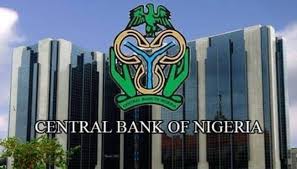The Central Bank of Nigeria (CBN) has raised serious alarms over growing cybersecurity deficiencies within the banking and fintech industries. In response, senior officials are stepping up regulatory oversight and urging institutions to fortify their defences.
During a recent Fintech summit hosted by the Financial Institutions Training Centre (FITC) in Lagos, Mr. Philip Ikeazor, Deputy Governor for Financial Systems Stability, stated that rising cyber threats, data breaches, and digital fraud pose critical risks to customer trust and financial stability. He emphasised that robust corporate governance and strict licensing rules are essential to future-proof the sector.

CBN Governor Olayemi Cardoso echoed this sentiment, calling on all banks to enhance risk management frameworks and invest in advanced cybersecurity protocols, including regular audits and workforce training
These calls come against a backdrop of alarmingly high fraud losses. In 2024 alone, Nigerian banks recorded losses exceeding ₦53.4 billion ($130 million) from hacker attacks. One major breach at Hope Payment Service Bank resulted in ₦10 billion stolen, triggering legal crackdowns that froze over 800 suspect accounts. Smaller incidents—such as Fidelity and Wema banks facing fines for mishandling client data—have further highlighted the sector’s vulnerabilities.

Open Banking Systems Face Scrutiny as Cybersecurity Concerns Escalate
Adding to the challenge is the CBN’s planned rollout of open banking in August 2025—a landmark move that makes Nigeria the first African nation to formalise such a framework. Under this system, consumers will be empowered to share their financial data with third-party providers through standardised APIs, enabling personalised lending, budgeting tools, and payment services.
While open banking promises innovation, it also expands the attack surface. Experts caution that if not rigorously controlled, third-party access could expose sensitive information to hackers. The current regulatory framework lacks a robust accreditation process for these new players, as exists under the UK’s open banking standards.
Moreover, there’s no mandated compensation for customers who suffer losses via open-banking channels—a shortfall likely to undermine user confidence. The CBN is expected to address these gaps in forthcoming policy revisions.

A Call to Arms: Cyber Resilience in Nigerian Finance
With Nigerian banks increasing technology expenditure—reaching ₦518.5 billion in 2024, a dramatic rise from ₦248 billion in 2023—the emphasis remains heavily on digital upgrades rather than shoring up data defences. While these investments support AI-powered services and mobile banking, cybersecurity still trails behind.
Cyber-intelligence agencies have flagged that some banks and fintechs routinely bypass withdrawal and transaction limits, aiding large-scale fraud. One reported case saw a single wallet process ₦374 million in one day, dramatically above the CBN-mandated ₦5 million cap.
In this environment, the CBN’s introduction of a National Consumer Trust Framework aims to re-establish customer confidence. Part of Nigeria’s broader Renewed Hope Agenda, the initiative seeks to unify regulatory standards, heighten accountability, and strengthen complaint resolution systems.

What’s Next?
- Enforcement and training: Expect intensified audits, unannounced checks, and steep sanctions against firms seen as lagging in cybersecurity.
- Open banking regulation: Critical enhancements to accreditation procedures and customer compensation rules are likely ahead.
- Digital trust-building: Consumer education campaigns and digital literacy programs must complement technical measures to rebuild trust in online finance.
Why this matters
Failing to tackle these issues risks undermining years of progress in financial inclusion. As Mr. Cardoso remarked, “Digitalisation also brings challenges that could erode trust if not properly managed.” With millions relying on mobile banking and fintech services, trust isn’t optional—it’s the foundation. Strengthening cybersecurity measures ensures continuity, protects user data, fosters confidence in digital platforms, and empowers financial institutions to innovate safely in a rapidly evolving digital economy without compromising user experience or national financial stability.
Join Our Social Media Channels:
WhatsApp: NaijaEyes
Facebook: NaijaEyes
Twitter: NaijaEyes
Instagram: NaijaEyes
TikTok: NaijaEyes





